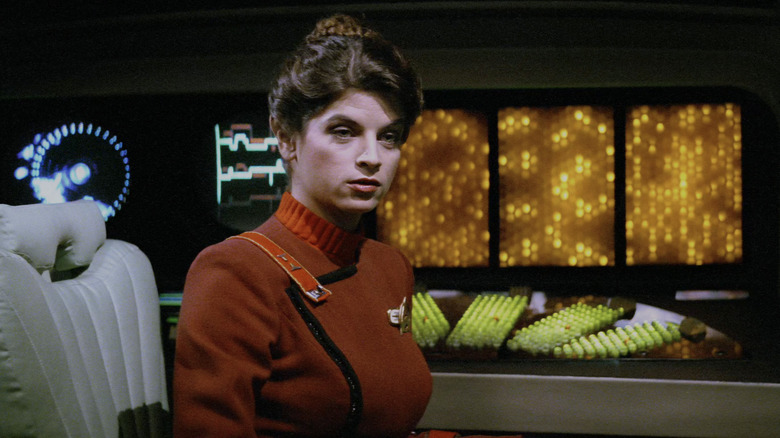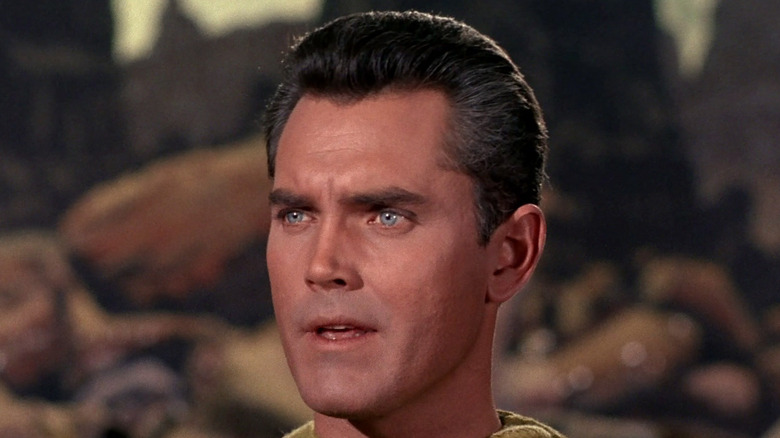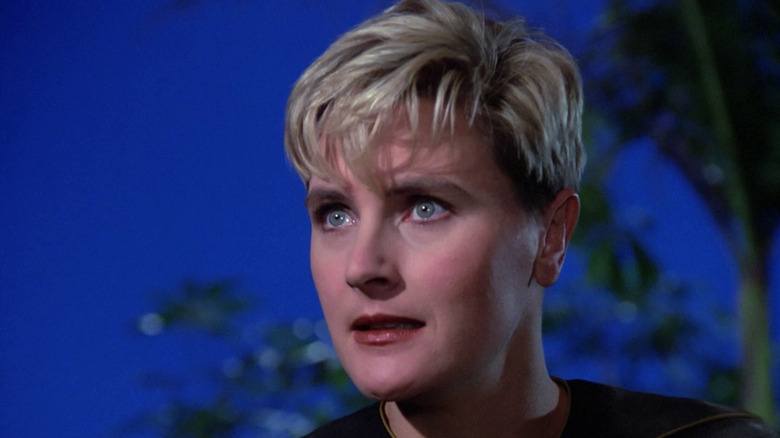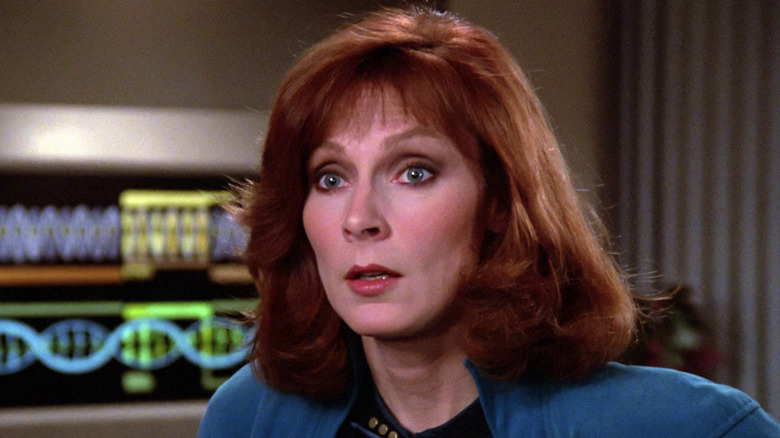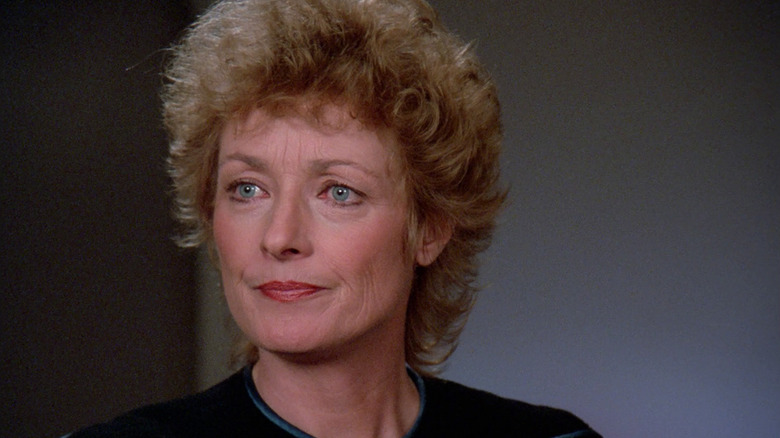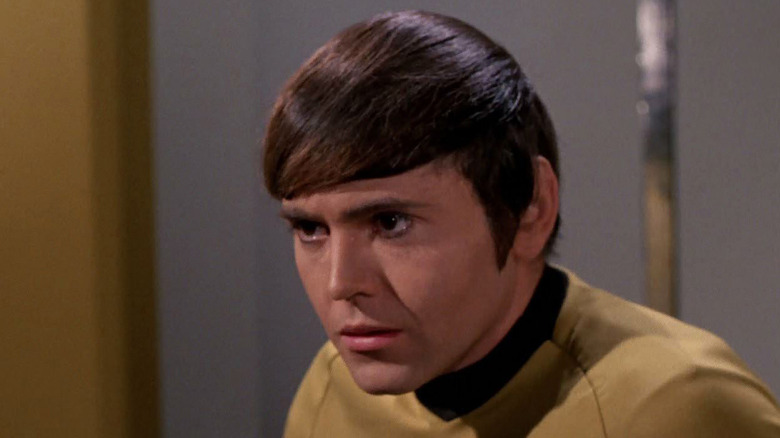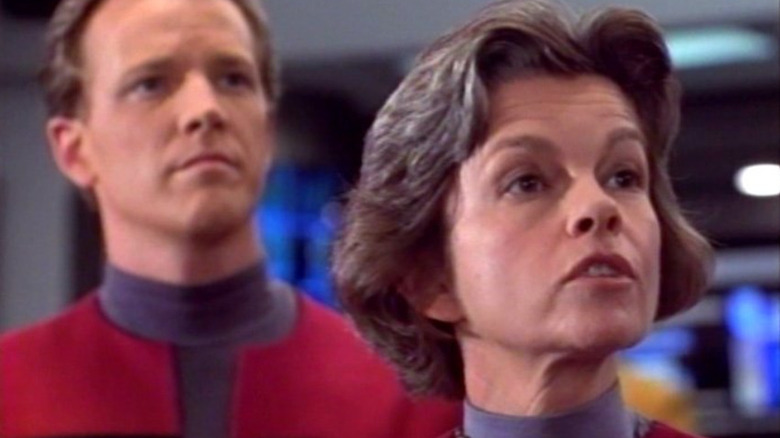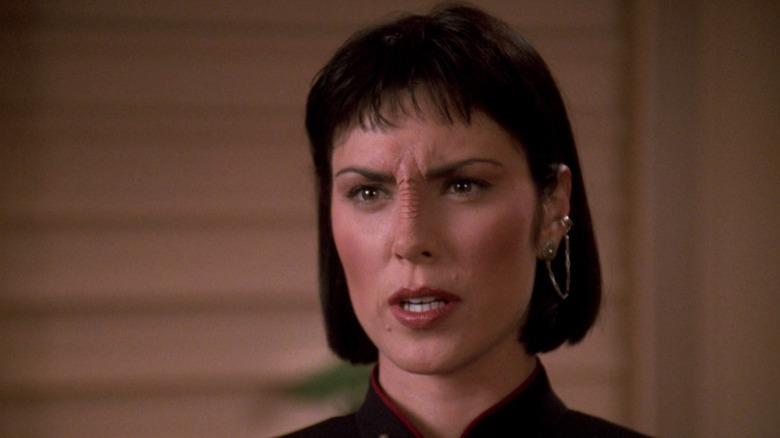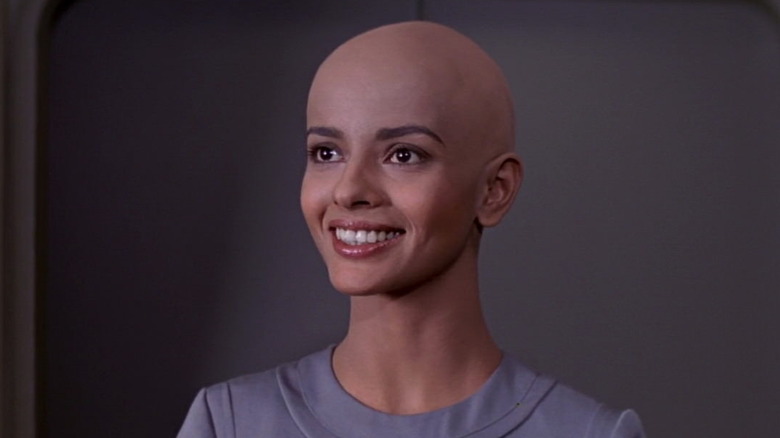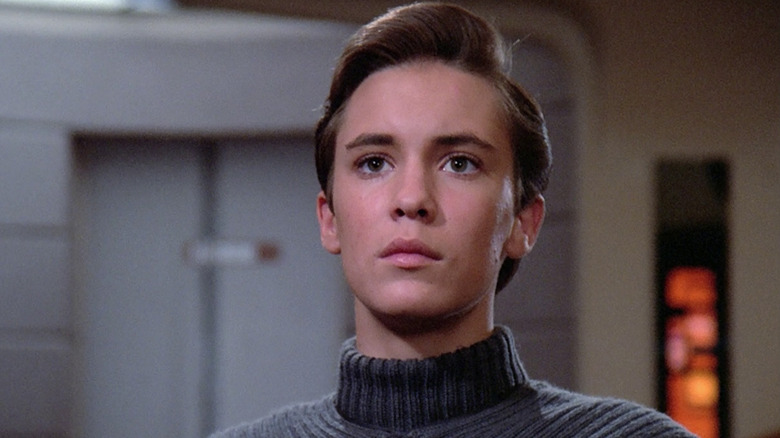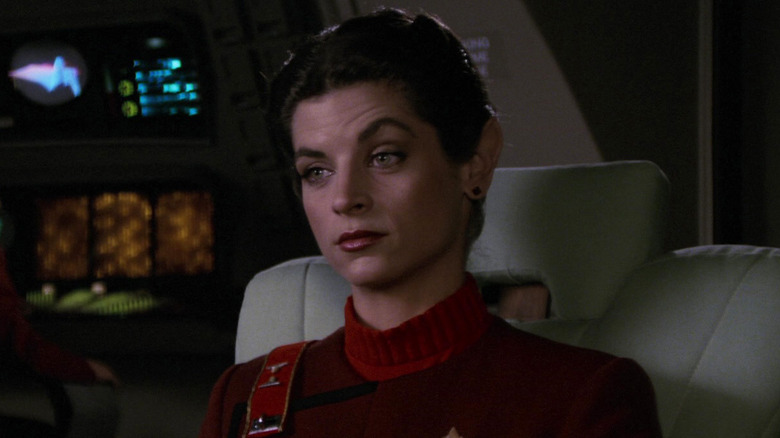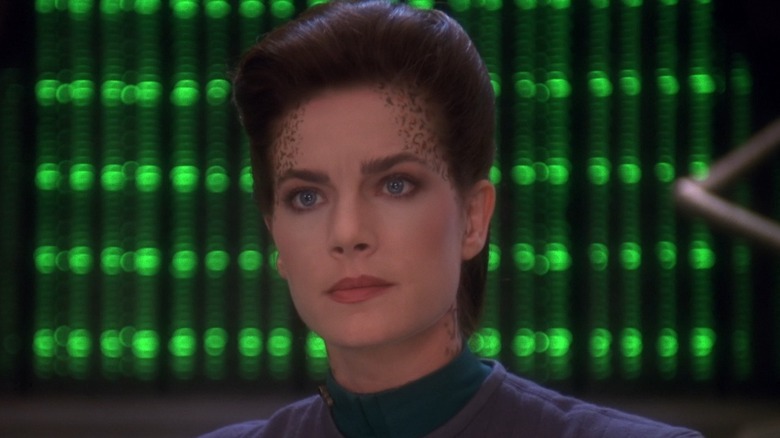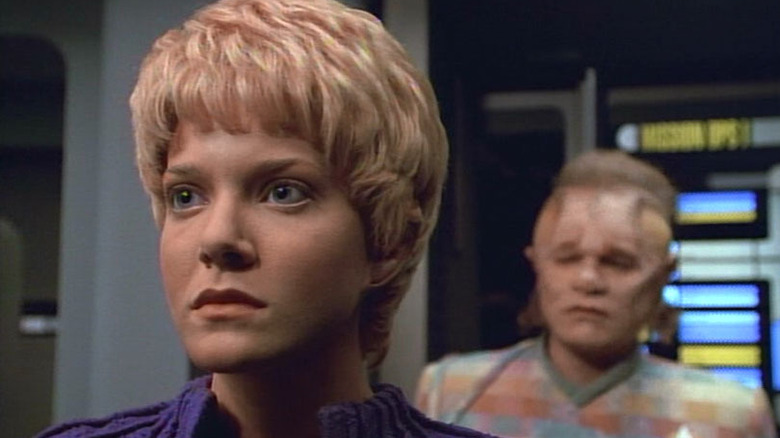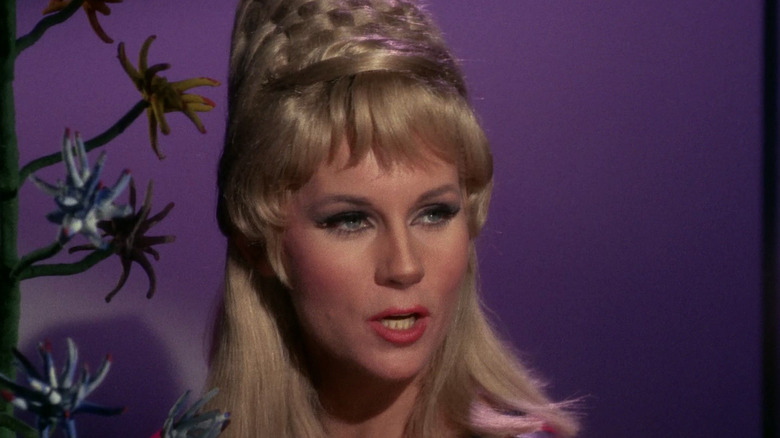Why These Star Trek Actors Really Left The Franchise
In the expansive "Star Trek" universe, some of its brightest stars embarked on unforeseen journeys, abruptly departing the franchise to both the dismay and intrigue of fandom.
Why didn't Kirstie Alley return as the beloved Lt. Saavik? What prompted Jeffrey Hunter to relinquish the role of Captain Pike? Who ejected Gates McFadden's Dr. Crusher from the airlock? How come Diana Muldaur, her replacement, endured only a single season? Why did Wil Wheaton part ways with Wesley Crusher? And why was Grace Lee Whitney, as Yeoman Janice Rand, dropped from the cast even before the original series premiered in 1966?
These departures stemmed from a myriad of forces: financial constraints, contract negotiations, miscasting, yearnings for new horizons or strange new opportunities, life-altering events, creative and personal conflicts, or a blend of these influences. Most were unexpected and frequently controversial. Whether these exits bolstered or hindered the franchise, the judgment is yours, but here's how and why they happened.
Jeffrey Hunter disliked the first pilot
Jeffrey Hunter's brief "Star Trek" stint can be attributed to a blend of personal choices and professional considerations. He originated the role of Captain Christopher Pike in the original pilot, "The Cage," filmed in late 1964. However, when the NBC network didn't pick up the series, Hunter's obligation ended. Desilu Productions invited him back for the second pilot. He declined.
Speculation runs rampant regarding the reasons. Accounts from those close to the matter differ on specifics but all concur that Hunter was unenthusiastic about returning. In 1972, former Desilu V.P. Oscar Katz recounted that following a screening of the pilot, "Word came back that [Hunter] didn't want to do it because he didn't like the show." With Desilu's business affairs department and Hunter's agent miles apart, and time running out to cast the second pilot, tempers got short. "One day I said, 'Well, forget it, we'll sign another lead.'" Thus, Captain Pike's mantle went to William Shatner's Captain Kirk.
The unaired pilot eventually became part of the episode "The Menagerie," but even that required negotiations between Desilu and Hunter to reuse the footage within the series. We can thank Hunter for agreeing to those terms.
Denise Crosby requested permission to disembark
Production of Season 1 of "Star Trek: The Next Generation" was a train wreck, as reported in William Shatner's documentary "Chaos On the Bridge." The problems stemmed from the "Trek" offices. Writer turnover was the norm, and "Star Trek" creator Gene Roddenberry's decisions ran roughshod over everyone, even "Trek" veterans like Dorothy Fontana.
Amidst this chaos, planned characterizations and dynamics didn't quite play out. The scripts were especially bad for the female leads, who found themselves backgrounded. Writers especially didn't know what to do with Counselor Troi (Marina Sirtis), so much so that she vanished from several episodes. Sirtis says she was nearly written out of the show. They spared Sirtis but cast mate Denise Crosby was struggling with her underdeveloped character, Tasha Yar. "I had all these ideas and couldn't do them. I was just stage dressing. I chose to leave instead of just being satisfied with that." It was Roddenberry's idea to have the character die. He thought it would be shocking.
In the realm of "Star Trek," it seemed impossible for Yar to vanish permanently. Time travel shenanigans brought her back twice for massively popular and important episodes, and Crosby also played Yar's Romulan daughter, Sela, several times. "I never regretted my decision," said Crosby. "My favorite episode was "Yesterday's Enterprise." I had to die and leave the show in order to do [it]. There is some irony in that."
Gates McFadden ran afoul of the head writer
Gates McFadden's abrupt exit from "TNG" at the end of season one stunned fans. As the actress behind Dr. Beverly Crusher, she played an integral role in the show's familial dynamics. Her character's departure, leaving her son Wesley (Wil Wheaton) aboard the Enterprise, struck many as absurd. Speculation swirled regarding conflicts with higher-ups, including producer Maurice Hurley, and disagreements about her character's portrayal.
In a recent interview, Michael Rosenbaum questioned McFadden about whether her working relationship with Hurley led to her departure. She acknowledged the possibility, stating, "I think I definitely pissed him off." She cited concerns about the initial season's regressive portrayal of women in scripts and her dissatisfaction with the portrayal of Crusher's relationship with Wesley. "I kept saying, why is it that I've raised this genius kid... and yet every time there's anything, even possibly serious, it's only the male characters that talk to him," she explained. "She's a scientist. I'm not buying this."
The cast and fans alike didn't buy her farewell, which led to problems for her successor, Diana Muldaur. For fans of McFadden and Crusher, this unfortunate state of affairs lasted only one year. McFadden would return to the enterprise that was "TNG" in season three and stayed on for the rest of the show's run. She also reprised the role for the "TNG" movies and "Star Trek: Picard."
Diana Muldaur was never welcomed aboard
Following Gates McFadden's forced exit from "TNG," the powers that be decided to replace the character rather than recast the role. Executive producer and "Trek" creator Gene Roddenberry went to his go-to list to call upon Diana Muldaur. She had previously appeared twice (as different characters) on the OG "Trek" and starred in his pilot telefilm "Planet Earth." Muldaur took on the role of Dr. Katherine Pulaski and joined "TNG" during season two.
However, it wasn't a seamless transition. Rumors circulated that the cast, loyal to McFadden, did not welcome Muldaur. Audience response was mixed. Pulaski introduced a fresh dynamic with her no-nonsense demeanor but her early treatment of Lt. Commander Data (Brent Spiner) rubbed many viewers the wrong way.
Regarding her departure, Muldaur has revealed few details, aside from a scheduling conflict with the first episodes of "TNG's" season three when she was asked to reprise her role in a "McCloud" reunion telefilm. Her involvement in "TNG" was initially a favor to Roddenberry, and as his role diminished, she had little reason to stay. Her exit, however, proved fortuitous. She joined the cast of "LA Law" in her signature role as the scheming Rosalind Shays, a character who executed one of TV history's most memorable and shocking goodbyes.
Walter Koenig's Chekov was one ruble too many for Star Trek's animated adventures
George Takei and Nichelle Nichols, celebrated for their iconic portrayals of Sulu and Uhura in the original "Star Trek" series, triumphantly returned to their roles for the animated "Star Trek" series (1973–1974). However, their participation almost never happened. Filmation Associates, the animation company, initially aimed to cast only five original series actors. While William Shatner, Leonard Nimoy, and DeForest Kelley reclaimed their signature roles, Takei and Nichols were left out in the cold. James Doohan was to assume the mantle of Scotty and all other male characters, including Sulu. Majel Barrett Roddenberry was to resume her role as Nurse Chapel and perform all other female characters, including Uhura.
Nimoy, however, nobly rebelled, stating, "I refused to do Spock until they were hired." With that, Filmation welcomed Takei and Nichols aboard. Takei and Walter Koenig corroborated Nimoy's stance in the documentary "For the Love of Spock" (2016).
However, this was not one big happy fleet. Koenig, known for his portrayal of Chekov, found himself excluded from the animated adaptation due to cost constraints, and, regrettably, no advocate championed his cause. They instead offered Koenig the opportunity to pen an episode, resulting in the peculiar segment "The Infinite Vulcan."
Geneviève Bujold couldn't take the tech
Geneviève Bujold's swift exit from the lead role of Captain Nicole Janeway in "Star Trek: Voyager" remains a curious chapter in the franchise's history. Initially cast as the intrepid Starfleet captain, Bujold left the production just days into filming the pilot episode.
Bujold's departure stemmed from a mismatch in role expectations and the demanding production schedule. On set, she discovered a lack of interest in portraying the authoritative figure of a starship captain, preferring to play the role as a scientist. Like many actors, she struggled with the technical jargon and dialogue (as seen in this clip). Not even a week passed before she declared herself unsuited for the role and she and the production parted ways.
Her exit opened the door for the casting of Kate Mulgrew — who'd been in the running to play Nicole Janeway — as the renamed Captain Kathryn Janeway. The role would become iconic in the "Star Trek" universe. Bujold's departure serves as a lesson, underscoring the unique demands of television production and the delicate balance between an actor's artistic preferences and the dramatic imperatives of an established franchise.
Michelle Forbes chose to beam out rather than be tied down
While "TNG" grappled with a lot of offscreen drama involving its regular female cast members — namely Sirtis, Crosby, McFadden, and Muldaur — Michelle Forbes' departure took a different, more amicable path.
Forbes brought complexity and charisma to the character of Ensign Ro Laren during her seven appearances on "TNG." There were initial plans to transition her to "Deep Space Nine" as a core cast member. Producer Michael Piller noted, "Michelle Forbes is a wonderful actress, and her character of Ensign Ro created the entire canvas for this new series... It had always been assumed that she would be one of the people spun off and moved over to the new series."
However, Forbes harbored other aspirations. In 2005, she explained in an interview with TV Zone magazine that she didn't want to commit to a series. She reflected, "If I'd gone on to do DS9, I might not have had the variety I've been lucky to have in my career... That's not to say I wasn't grateful for the opportunity; I genuinely was. However, I had to make a choice that felt right for me, which was a difficult one."
When Forbes reprised her role in "Picard," she shared on Instagram, "Ro taught me a lot. I've held those lessons close. She always stayed true to her word & beliefs. Always honest. Even if uncomfortable."
Persis Khambatta's Ilia went from series regular to redshirt
A revival of "Star Trek" was a touch-and-go thing throughout the 70s. Many attempts proved stillborn before Paramount chose to reboot the property as a TV series to anchor its proposed fourth U.S. TV network. That series, simply called "Star Trek II" (what most people call "Phase II"), sought to bring back the entire OG cast, and all agreed except Leonard Nimoy. Joining them were three new regulars: Commander Decker (uncast for the series); Spock-replacement Lt. Xon (David Gautreaux); and navigator Lt. Ilia, a "Deltan" with empathic powers and superior mathematical ability.
The writers scripted several episodes that would feature Ilia as a major character, including "The Child," which would later be repurposed for "TNG." The studio cast the plum role with former Femina Miss India, Persis Khambatta. But the network failed to materialize. A hasty decision to repurpose the two-hour pilot script as a feature resulted in "Star Trek: The Motion Picture." Xon became superfluous after Nimoy agreed to return as Spock, and Decker and Ilia were loose ends fated to be the sacrificial lambs at the climax because heaven forbid that Kirk, Spock, and McCoy evolve into a higher life form.
Sherilyn Connelly's excellent biography "Presenting Persis Khambatta" reveals that the actress wasn't heartbroken. The process of filming had been arduous and disagreeable, and individuals unable to see beyond Ilia's bald head had hindered her career.
Wil Wheaton got the message, and left
Wil Wheaton's portrayal of the "wunderkind" character Wesley Crusher faced substantial backlash, with some viewers labeling him a "Mary Sue" figure. Though challenging for the young actor, it wasn't the primary reason for his eventual departure from the show.
Wheaton explained, "Here's the absolute truth why I left 'Star Trek': I left 'Star Trek' because it was seriously interfering with my career in feature films." Commitments to the series had forced him to turn down several movie roles. The breaking point came when director Miloš Forman expressed interest in casting him for his 1989 film "Valmont." However, the "TNG" team wouldn't write Wesley out of the first scheduled episode of Season 3 or adjust the production order to accommodate the film's shooting schedule. Wheaton was told the first episode of the season focused entirely on Wesley. "I said, 'Well, this really sucks, but I'm under contract to you guys and if that's your call and if that's what you say I have to do, I have to do.' I had to pass on the movie."
But that wasn't the end of it. The production order of the first two episodes got flipped, and Wesley played an insignificant in the first segment. "The message was, "We own you. Don't you ever try to do anything without us," said Wheaton. That message drove him to leave the series, though he eventually made a few visits as a special guest star.
Paramount made Kirstie Alley an offer she could refuse
Newcomer Kirstie Alley made a striking impression in the supporting yet memorable role of Lt. Saavik in "Star Trek II: The Wrath of Khan." Fans expressed disappointment when she chose not to reprise the character for "Star Trek III: The Search for Spock." The reason? Recall the iconic line from Paramount's classic "The Godfather," "I'm gonna make him an offer he can't refuse"? Well, the studio's offer to Alley was one she could, and did, refuse. Alley was taken aback by the studio's lowball offer. "You're not paying as much as the first one, and it's a bigger role? It just didn't make sense to me," Alley remarked. "Why would you offer someone less money for a bigger role?'"
With Paramount standing firm, Alley decided to move on, and Robin Curtis assumed the unenviable task of replacing her, which she did to mixed results and mixed reviews. For "Star Trek VI: The Undiscovered Country," director Nick Meyer envisioned Saavik as the traitor among the crew. For a variety of reasons, it didn't work out. Instead of recasting Saavik again, Meyer introduced Lt. Valeris (Kim Cattrall).
Unlike Saavik at Spock's funeral, Alley shed no tears over losing the part, transitioning to a successful career in numerous hit films and TV series, including the Paramount-produced classic "Cheers." Alley passed away on December 5, 2022.
Terry Farrell was just worn out
The typical contract for regulars on a TV series is six years, and if a show is lucky enough to continue beyond that all the cast contracts must be renegotiated. Actors on a successful series are in a better position to ask for more money or other concessions. Such was the case for the cast of "DS9" during Season 6. In particular, Terry Farrell, who played the role of Jadzia Dax, sought to challenge the status quo.
Specifically, she wanted to step back from a starring role to that of a recurring character who didn't appear in every episode. "I was just really tired. I was tired of waking up at four in the morning. I was tired of all the minutiae," Farrell explained. But no new deal was forthcoming, and the producers decided to "fridge" Jadzia and replace her with a new character.
Despite her desire for a break, Farrell didn't get one. She performed Jadzia's death scene for "DS9" one day, and tested for the Paramount-produced comedy "Becker" the next. She subsequently co-starred on "Becker" for several seasons until, ironically, she was let go from that show.
Jennifer Lien was reluctantly released
"Star Trek: Voyager" featured controversial characters in Neelix (Ethan Phillips) and Kes (Jennifer Lien), mainly due to the peculiar dynamic of their relationship. Kes was a two-year-old Ocampa with a nine-year lifespan. She was romantically involved with middle-aged Neelix, raising eyebrows among fans. As the show progressed, writers struggled with both Lien's Kes and Garrett Wang's Lt. Kim, and by Season 3 both were on the chopping block. Kim was spared when Wang was named one of "People" magazine's "50 Most Beautiful People in the World." Kes was not so fortunate.
Lien's mental health was also a concern. As related in the book "Star Trek: Voyager — A Celebration" by Ben Robinson and Mark Wright, the cast and crew realized Lien was dealing with personal issues. "We knew that there was something going on," co-creator Jeri Taylor said, "but she wouldn't talk or let us offer to help."
Kes exited in the second episode of Season 4. Lien landed a few film roles and performed occasional voice acting work, but by 2002 made a decisive departure from acting. Sadly, her mental health appears to have suffered further, and, in the mid-2010s, she was arrested for several crimes. Many of those charges were later dropped.
Grace Lee Whitney was cut for cost... and worse
Even before "Star Trek" premiered in September 1966, Grace Lee Whitney's character, Yeoman Janice Rand, had been written out of the show.
Whitney addressed the topic in her memoir "The Longest Trek: My Tour of the Galaxy," in which she candidly admitted having been a victim of sexual assault. The culprit was someone at Desilu Studios she identified only as "The Executive." Whitney believed she'd been let go because the perpetrator didn't want her around as a constant reminder of what he'd done. But it was budget considerations that led to the decision to drop her. In late August 1966, casting director Joe D'Agosta penned a memo discussing cast costs. Whitney was one of the highest-paid supporting cast members, but underutilized. D'Agosta recommended her deal be renegotiated, or the character dropped or recast. This was just before the assault.
Roddenberry always regretted cutting Rand from the show. Less than two months after her dismissal, Roddenberry issued a memo concerning the possibility of bringing Whitney back in a guest capacity. But Rand would remain MIA on "Trek" until the "Star Trek: The Motion Picture." She also cameoed in movies "III," "IV," and "VI" and, finally, in the "Voyager" episode "Flashback."
At the end of her life, Whitney (who died in 2015) had long since made peace with the events, and even said as much to this author over lunch in 2012. That's what you might call a grace note.
